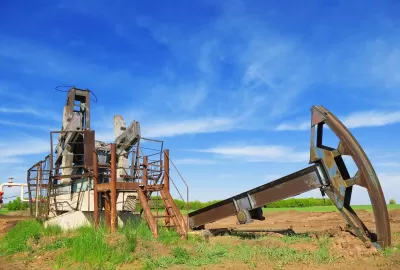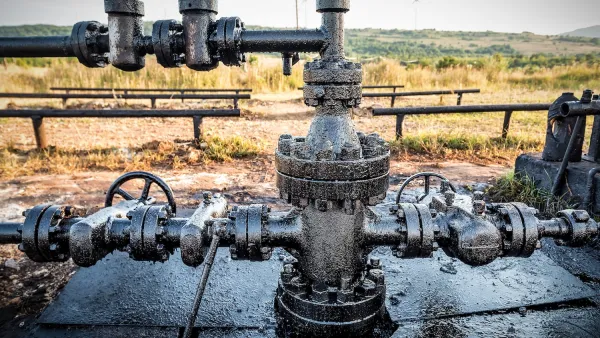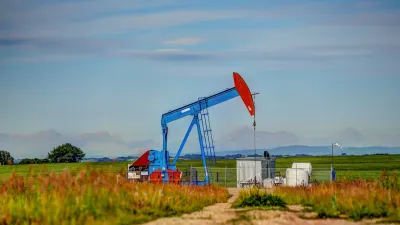The funding will be used to plug orphaned oil and gas wells, addressing environmental hazards, creating jobs, and advancing environmental justice as part of a larger effort funded by the Bipartisan Infrastructure Law.

The Biden-Harris Administration, through the Department of the Interior, has announced the allocation of $126.7 million to tackle legacy pollution in Alaska, Arizona, Indiana, New York, and Ohio. This funding is part of President Biden's Investing in America agenda and aims to address the environmental and safety hazards posed by orphaned oil and gas wells. These wells, which release toxic pollutants and methane, will be plugged to protect public health, reduce climate change impacts, and create good-paying union jobs. The initiative supports the U.S. Methane Emissions Reduction Action Plan and contributes to broader environmental justice goals.
The funding will enable the five states to plug nearly 600 orphaned wells and inventory additional undocumented wells for future plugging. These efforts seek to not only mitigate environmental hazards but also spur economic growth and community revitalization. Secretary of the Interior Deb Haaland emphasized the significance of this historic investment in addressing environmental injustices and protecting millions of Americans living near these hazardous sites. The initiative is aligned with the President’s Justice40 Initiative, which aims to deliver 40 percent of the benefits of federal investments to disadvantaged communities.
This funding is part of a larger $660 million in formula grants from the Bipartisan Infrastructure Law, which includes a total investment of $4.7 billion to address legacy pollution across the United States. Since August 2022, the Department has awarded $565 million in initial grant funding, and as of March 2024, over 340 wells have been plugged in the five states receiving the latest funding. Nationwide, over 7,700 wells have been plugged, reducing significant carbon dioxide equivalent emissions and supporting thousands of jobs. States are also eligible for additional performance grants to further enhance their efforts in tackling orphaned wells.

Planetizen Federal Action Tracker
A weekly monitor of how Trump’s orders and actions are impacting planners and planning in America.

Congressman Proposes Bill to Rename DC Metro “Trump Train”
The Make Autorail Great Again Act would withhold federal funding to the system until the Washington Metropolitan Area Transit Authority (WMATA), rebrands as the Washington Metropolitan Authority for Greater Access (WMAGA).

DARTSpace Platform Streamlines Dallas TOD Application Process
The Dallas transit agency hopes a shorter permitting timeline will boost transit-oriented development around rail stations.

Renters Now Outnumber Homeowners in Over 200 US Suburbs
High housing costs in city centers and the new-found flexibility offered by remote work are pushing more renters to suburban areas.

The Tiny, Adorable $7,000 Car Turning Japan Onto EVs
The single seat Mibot charges from a regular plug as quickly as an iPad, and is about half the price of an average EV.

Supreme Court Ruling in Pipeline Case Guts Federal Environmental Law
The decision limits the scope of a federal law that mandates extensive environmental impact reviews of energy, infrastructure, and transportation projects.
Urban Design for Planners 1: Software Tools
This six-course series explores essential urban design concepts using open source software and equips planners with the tools they need to participate fully in the urban design process.
Planning for Universal Design
Learn the tools for implementing Universal Design in planning regulations.
Municipality of Princeton
Roanoke Valley-Alleghany Regional Commission
City of Mt Shasta
City of Camden Redevelopment Agency
City of Astoria
Transportation Research & Education Center (TREC) at Portland State University
US High Speed Rail Association
City of Camden Redevelopment Agency
Municipality of Princeton (NJ)





























